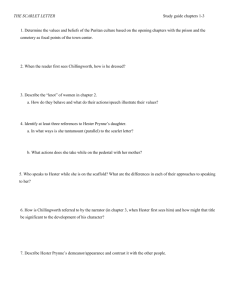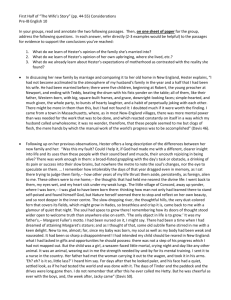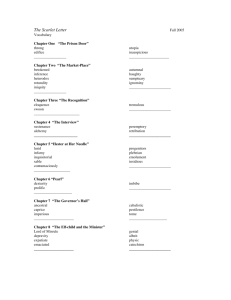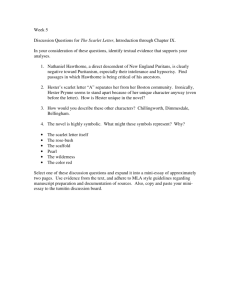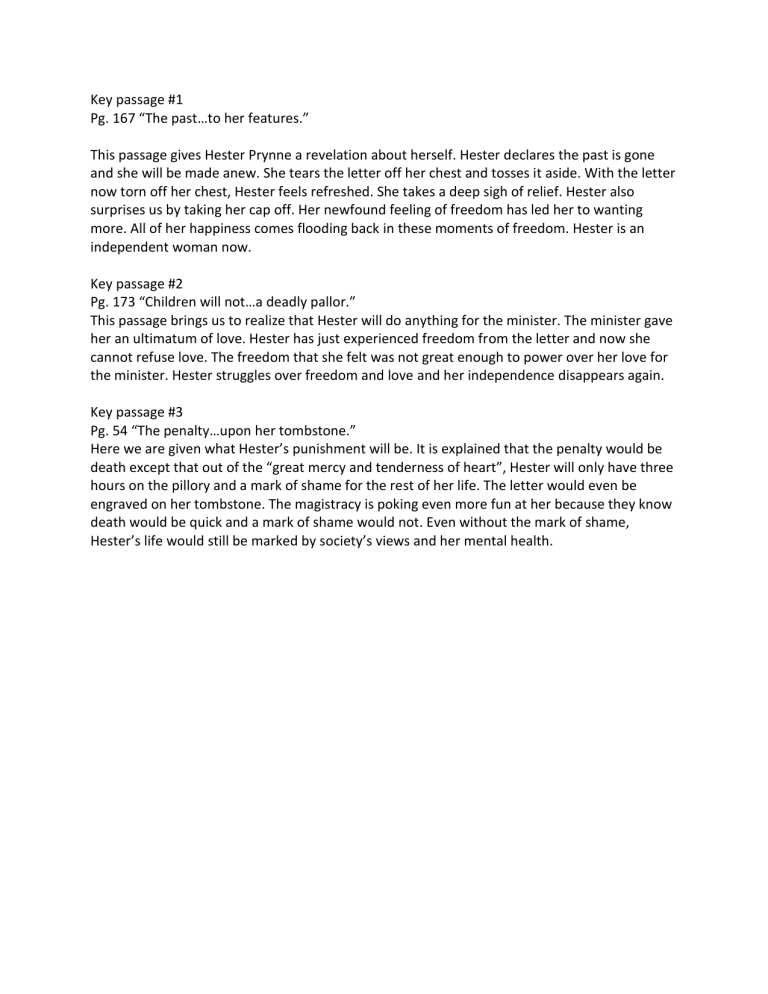
Key passage #1 Pg. 167 “The past…to her features.” This passage gives Hester Prynne a revelation about herself. Hester declares the past is gone and she will be made anew. She tears the letter off her chest and tosses it aside. With the letter now torn off her chest, Hester feels refreshed. She takes a deep sigh of relief. Hester also surprises us by taking her cap off. Her newfound feeling of freedom has led her to wanting more. All of her happiness comes flooding back in these moments of freedom. Hester is an independent woman now. Key passage #2 Pg. 173 “Children will not…a deadly pallor.” This passage brings us to realize that Hester will do anything for the minister. The minister gave her an ultimatum of love. Hester has just experienced freedom from the letter and now she cannot refuse love. The freedom that she felt was not great enough to power over her love for the minister. Hester struggles over freedom and love and her independence disappears again. Key passage #3 Pg. 54 “The penalty…upon her tombstone.” Here we are given what Hester’s punishment will be. It is explained that the penalty would be death except that out of the “great mercy and tenderness of heart”, Hester will only have three hours on the pillory and a mark of shame for the rest of her life. The letter would even be engraved on her tombstone. The magistracy is poking even more fun at her because they know death would be quick and a mark of shame would not. Even without the mark of shame, Hester’s life would still be marked by society’s views and her mental health.
